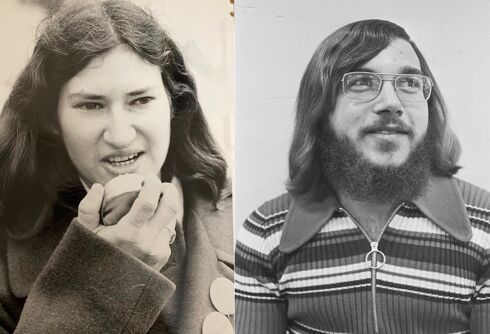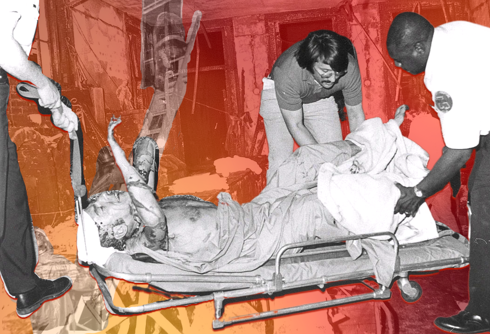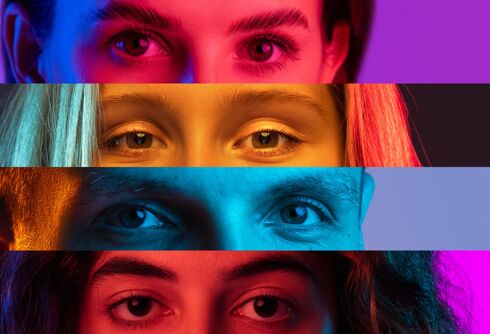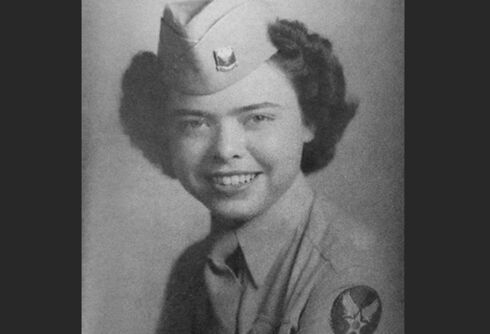October marks LGBTQ+ History Month.
It’s a time to remember the history that is often forgotten and honor the many strides the LGBTQ+ community has made in recent decades. As a queer young person myself, I wanted to better understand the rich history that came before me to gain a deeper appreciation of what it means to be a queer American at this moment in time.
Related:
To hide our history is to deny our existence: Kids must learn what queer folks have given the world
Queer people gave us computers, the Mona Lisa, and “Where the Wild Things Are.” LGBTQ+ youth deserve to see that they aren’t alone.
I spoke with Victor Basile, a long-time LGBTQ+ rights advocate and the first executive director of the Human Rights Campaign, the nation’s largest queer rights advocacy group. Basile was also the co-founder of the LGBTQ+ Victory Fund, which supports LGBTQ+ political candidates. This year, he released his memoir Bending Toward Justice, about the history of HRC.
Never Miss a Beat
Subscribe to our newsletter to stay ahead of the latest LGBTQ+ political news and insights.
In our conversation, I was looking for context: I needed something to help me understand the wave of anti-LGBTQ+ attacks we’ve seen in recent years.
Together, we sat down virtually to look at where we stand and where we go from here.
LGBTQ Nation: Can you provide an overview of the current landscape of LGBTQ+ rights for queer youth in the US today?
Victor Basile: It’s pretty rough. We’re facing an onslaught of bills against queer youth, with more than 420 anti-LGBTQ bills having been introduced into state/local legislatures this year. They come mostly from red states and queer youth are largely the ones targeted. Until recently we’ve made some great progress. And it’s only in recent years that have we seen — what I call “emboldened behavior — because anti-gay politicians see a political advantage. I see this as a fairly recent development. And it may get rougher before it gets better.
LGBTQ Nation: What do you mean by ‘get rougher’?
VB: In red states, little will get in the way of the passage of many of these anti-LGBTQ bills, try as we might. There are just too many states and too many legislators to successfully fight. But just as we did in the 80s and early 90s when things were so bad, we did learn how to fight and we did learn how to win. And the same is true now: We’re eventually going to beat these attacks back if we stay focused and organized. We’ve been down this road before.
LGBTQ Nation: Tell me more about the period of time when you served as the head of the Human Rights Campaign
VB: There were frequent ‘gay bashings’ directed mostly at gay men [like Matthew Shepard]. The police would do little to help, they would say the victim got what they deserved for being gay and the courts would agree.
The government also turned its back on us when AIDS came around as we watched thousands of people die, which started around 1983. It took Ronald Reagan until 1987, when he made a speech about it. Every year up until then, his administration zeroed out any funding for AIDS research. It wasn’t until 1983 that Congress put money on the books to fight AIDS. But queer youth today don’t know much about that history. Through telling these stories, it may give some hope to today’s youth that we may overcome.
LGBTQ Nation: What’s on your mind this LGBTQ History Month?
VB: To know us is to love us; the more visibility, the better life is. Do you know how National Coming Out Day started? It grew from the War Conference held in 1988, which was a gathering of about 275 activists around the country to address the government’s handling of the AIDS epidemic. It was called this way because we felt, back then, that the government was at war with us. And the overwhelming conclusion, despite all our disagreements, was the need for people to be “out” in public and that would eventually change people’s minds about our community.
I was there. It brought together older and younger activists, and women made up a third of the activists. Where it fell short was people of color because it was overwhelmingly white. That was a failure of the War Conference.
LGBTQ Nation: How would you say the conversations surrounding the LGBTQ+ community have evolved since the 1988 conference?
VB: The term ‘transgender’ was not at all on the boilerplate during my time at the HRC so there was this general unawareness of the trans community. The attacks directed at the lesbian and gay community back then are now being directed to the trans community today; it’s repeating itself.
And back then, it was so hard to get the mainstream media to cover the LGBTQ community. But turn on the TV now and you’ll see there are LGBTQ characters. The public is now on our side, the polls are still favorable to same-sex marriage even in red states. It’s why this month is so important.
LGBTQ Nation: We’ve talked a lot about the past, but where do we go from here? The future’s looking bleak to me.
VB: There is little doubt in my mind that we will overcome this. How much time that takes, I don’t know. We have not faced this type of political repression before and just need to figure out how to fight here. It’s a battle we may win state by state, and we have to take care of our own.
Given everything going on, we’ve come a long way. This is just a setback.
















